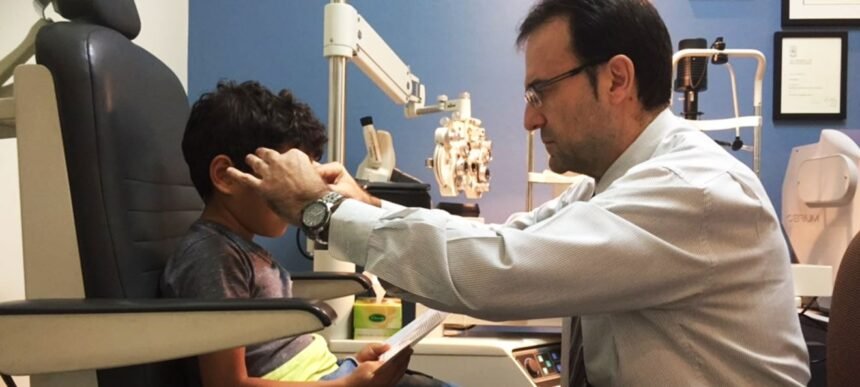Dry eye syndrome is a common condition that affects millions of people worldwide. Characterized by insufficient lubrication and moisture on the surface of the eye, dry eyes can lead to discomfort, visual disturbances, and potential damage to the eye’s surface. Understanding the symptoms, causes, and available treatments is crucial for managing this condition effectively. This guide aims to provide a comprehensive overview of dry eyes, helping you identify the symptoms, understand the underlying causes, and explore effective remedies and treatments.
Symptoms of Dry Eyes
Dry eye symptoms can vary from mild to severe and may include:
- Persistent dryness: A constant feeling of dryness in the eyes.
- Redness: Irritated, bloodshot eyes.
- Burning or stinging sensation: A sensation of burning or stinging in the eyes.
- Itching: Uncomfortable itching in the eyes.
- Sensitivity to light: Increased sensitivity to light (photophobia).
- Blurry vision: Temporary episodes of blurred vision.
- Foreign body sensation: Feeling like there is something in your eye.
- Watery eyes: Paradoxically, dry eyes can lead to excessive tearing as a response to irritation.
Causes of Dry Eyes
Dry eyes can result from various factors, including:
- Aging: Tear production tends to decrease with age.
- Medications: Certain medications, such as antihistamines, decongestants, and antidepressants, can reduce tear production.
- Medical conditions: Conditions like rheumatoid arthritis, diabetes, and thyroid disorders can contribute to dry eyes.
- Environmental factors: Exposure to wind, smoke, dry air, and prolonged screen time can exacerbate dry eye symptoms.
- Hormonal changes: Hormonal changes, particularly in women during menopause, can lead to dry eyes.
- Contact lenses: Long-term use of contact lenses can reduce tear film production and increase evaporation.
- Eye surgery: Procedures like LASIK can sometimes reduce tear production.
Effective Treatments and Remedies for Dry Eyes
Managing dry eyes often involves a combination of lifestyle changes, over-the-counter treatments, and medical interventions. Here are some effective approaches:
1. Over-the-Counter Treatments
- Artificial tears: Lubricating eye drops can provide temporary relief from dry eye symptoms. Look for preservative-free options for frequent use.
- Eye ointments: Thicker than drops, ointments provide longer-lasting relief, especially useful at night.
- Hydrating gels: These provide longer-lasting relief than standard eye drops.
2. Prescription Medications
- Anti-inflammatory drugs: Prescription eye drops like cyclosporine (Restasis) or lifitegrast (Xiidra) can help reduce inflammation and increase tear production.
- Tear-stimulating medications: Oral medications such as pilocarpine can stimulate tear production.
3. Lifestyle and Home Remedies
- Warm compresses: Applying a warm compress to the eyes can help open blocked oil glands, improving tear quality.
- Humidifiers: Using a humidifier can add moisture to the air, reducing dry eye symptoms.
- Blink more often: Especially during prolonged screen use, consciously blinking more can help maintain moisture on the eye’s surface.
- Stay hydrated: Drinking plenty of water helps maintain overall body hydration, including tear production.
- Adjust your environment: Avoid exposure to wind, smoke, and dry air. Use wraparound sunglasses to protect your eyes outdoors.
4. Medical Procedures
- Punctal plugs: These tiny devices are inserted into the tear ducts to block drainage, helping to retain moisture on the eye’s surface.
- LipiFlow: A thermal pulsation treatment that helps clear blocked oil glands.
- Intense pulsed light (IPL) therapy: Used to treat inflammation of the eyelids that can contribute to dry eyes.
Conclusion
Dry eyes can significantly impact your quality of life, but with the right approach, you can manage and alleviate the symptoms effectively. Recognizing the signs of dry eyes, understanding the causes, and exploring a variety of treatments and remedies can help you find the relief you need. Whether through lifestyle adjustments, over-the-counter solutions, or medical interventions, addressing dry eyes promptly and effectively will ensure your eyes remain healthy and comfortable. If symptoms persist, consult with an eye care professional to develop a personalized treatment plan tailored to your specific needs.



